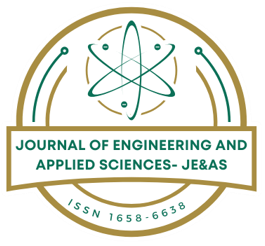| Original Research Received: 01 Feb 2022, Accepted: 11 Apr 2022, | ||||||||||||||||||||||||||||||
Devise and Adopt a Technique to validate Digital Healthcare System using Finite State Machine Khalid Abdullah Aldriwish. SUPPLEMENTARY FILES :
| ||||||||||||||||||||||||||||||
| How to Cite this Article |
| Pubmed Style Khalid Abdullah Aldriwish. Devise and Adopt a Technique to validate Digital Healthcare System using Finite State Machine. Journal of Engineering and Applied Sciences. 2022; 9(1): 42-56. doi:10.5455/jeas.2022050104 Web Style Khalid Abdullah Aldriwish. Devise and Adopt a Technique to validate Digital Healthcare System using Finite State Machine. https://jecasmu.org/?mno=9946 [Access: December 26, 2025]. doi:10.5455/jeas.2022050104 AMA (American Medical Association) Style Khalid Abdullah Aldriwish. Devise and Adopt a Technique to validate Digital Healthcare System using Finite State Machine. Journal of Engineering and Applied Sciences. 2022; 9(1): 42-56. doi:10.5455/jeas.2022050104 Vancouver/ICMJE Style Khalid Abdullah Aldriwish. Devise and Adopt a Technique to validate Digital Healthcare System using Finite State Machine. Journal of Engineering and Applied Sciences. (2022), [cited December 26, 2025]; 9(1): 42-56. doi:10.5455/jeas.2022050104 Harvard Style Khalid Abdullah Aldriwish (2022) Devise and Adopt a Technique to validate Digital Healthcare System using Finite State Machine. Journal of Engineering and Applied Sciences, 9 (1), 42-56. doi:10.5455/jeas.2022050104 Turabian Style Khalid Abdullah Aldriwish. 2022. Devise and Adopt a Technique to validate Digital Healthcare System using Finite State Machine. Journal of Engineering and Applied Sciences, 9 (1), 42-56. doi:10.5455/jeas.2022050104 Chicago Style Khalid Abdullah Aldriwish. "Devise and Adopt a Technique to validate Digital Healthcare System using Finite State Machine." Journal of Engineering and Applied Sciences 9 (2022), 42-56. doi:10.5455/jeas.2022050104 MLA (The Modern Language Association) Style Khalid Abdullah Aldriwish. "Devise and Adopt a Technique to validate Digital Healthcare System using Finite State Machine." Journal of Engineering and Applied Sciences 9.1 (2022), 42-56. Print. doi:10.5455/jeas.2022050104 APA (American Psychological Association) Style Khalid Abdullah Aldriwish (2022) Devise and Adopt a Technique to validate Digital Healthcare System using Finite State Machine. Journal of Engineering and Applied Sciences, 9 (1), 42-56. doi:10.5455/jeas.2022050104 |
 Submit Article
Submit Article - Author Login
- Reviewer Login
- About Publisher
- Peer Review Policy
- Author's Rights and Obligations
- Publication Ethics and Publication Malpractice Statement
- Conflict of Interest Policy
- Plagiarism Policy
- Protection of Research Participants (Statement On Human And Animal Rights)
- Privacy Policy
- Corrections, Retractions & Expressions of Concern
- Self-Archiving Policies
- Statement of Informed Consent
- Terms of Use
- License Information
- Copyright Information
- Statement on the Use of Generative AI
- ISSN: 1658-6638 (print)
- ISSN: 1658-7073 (electronic)

